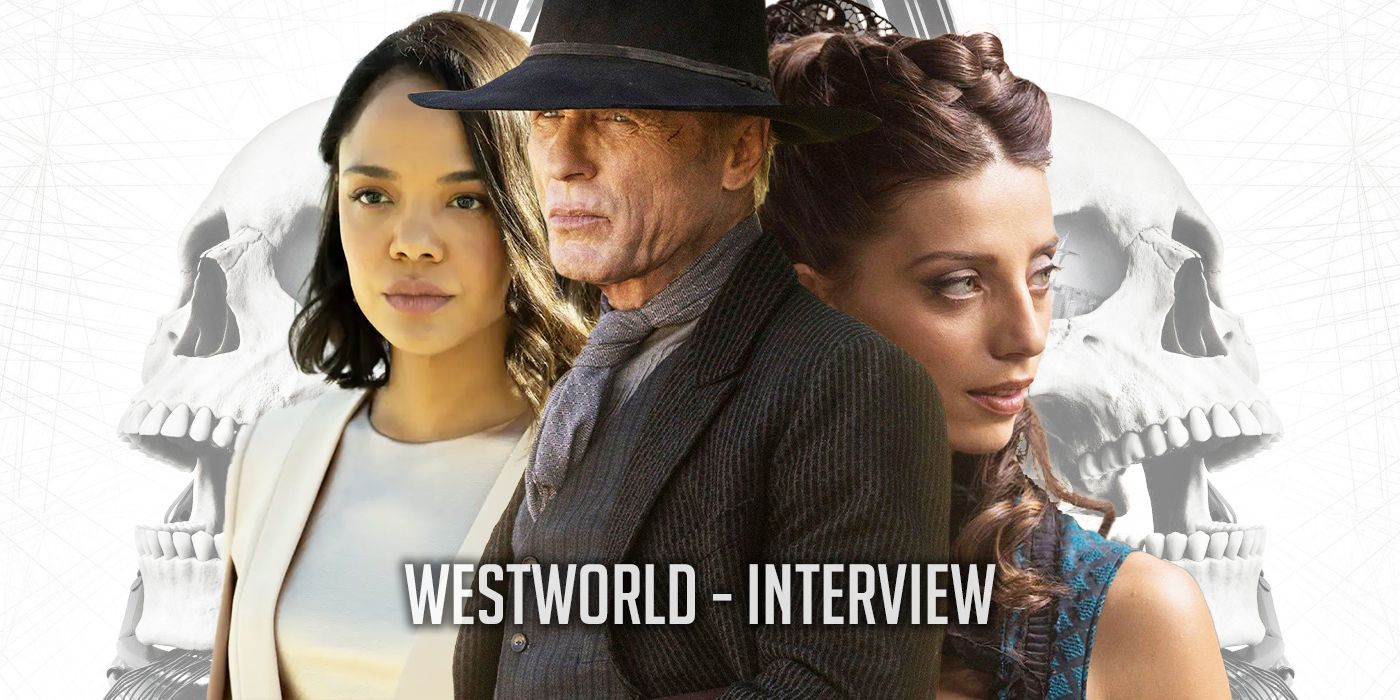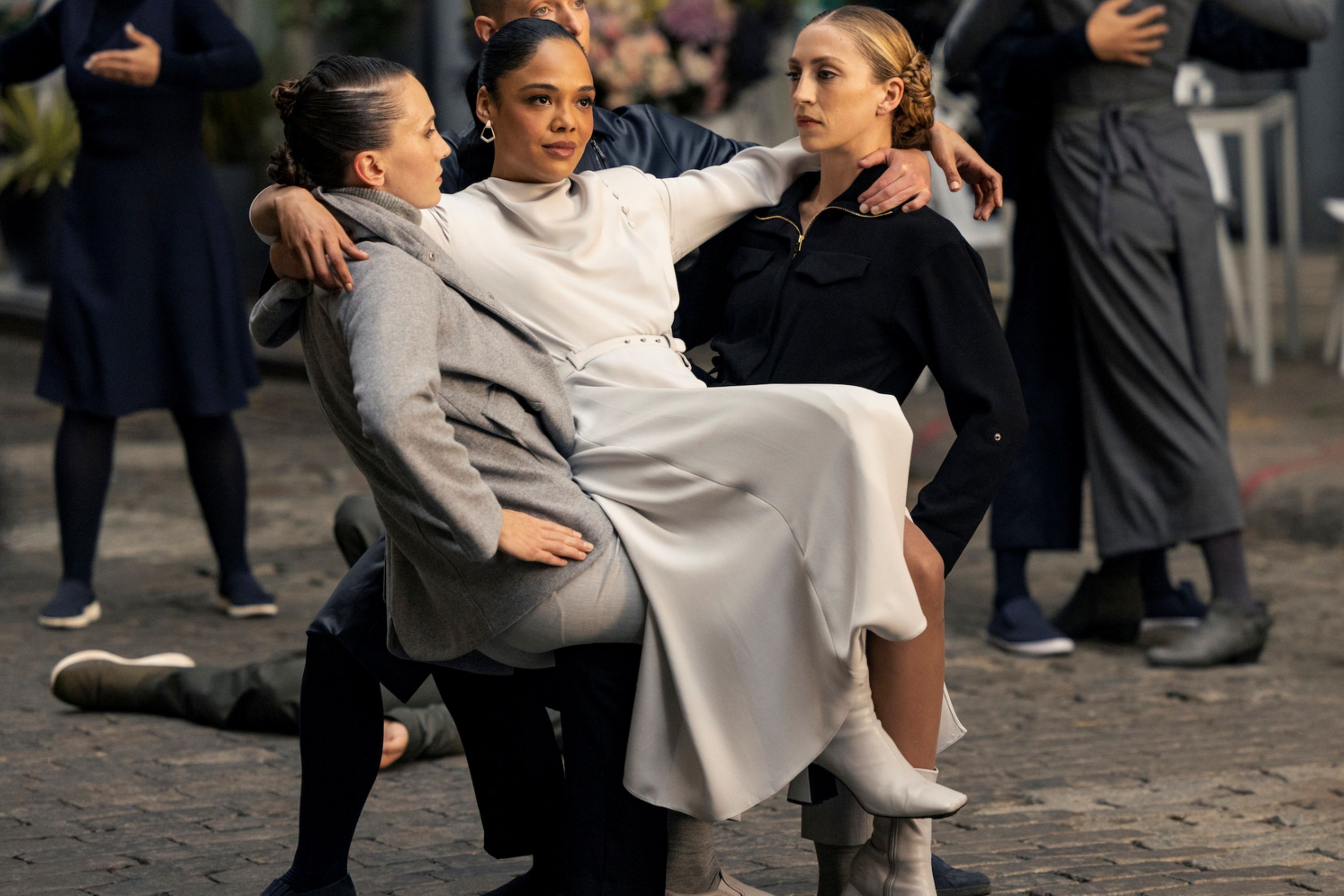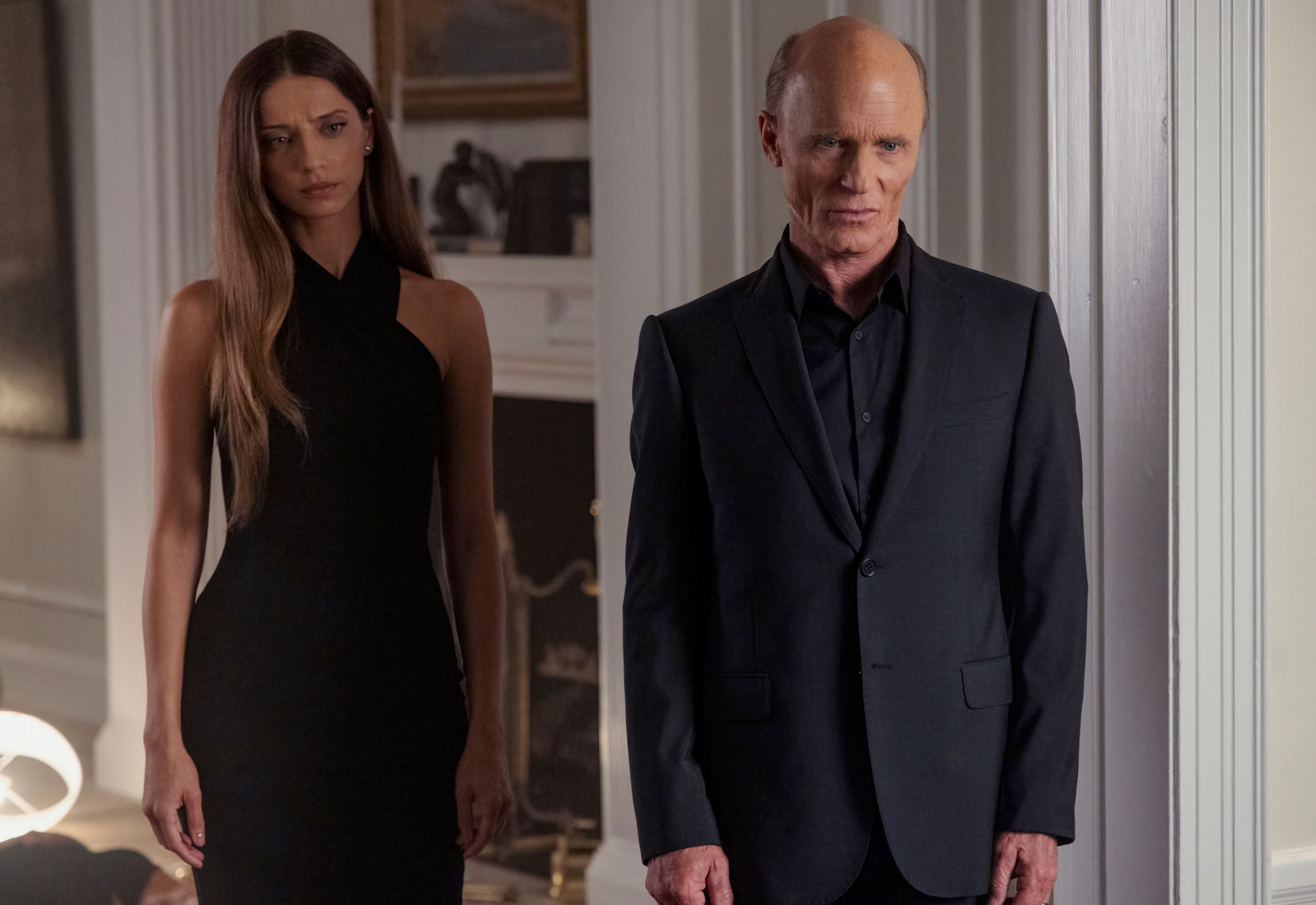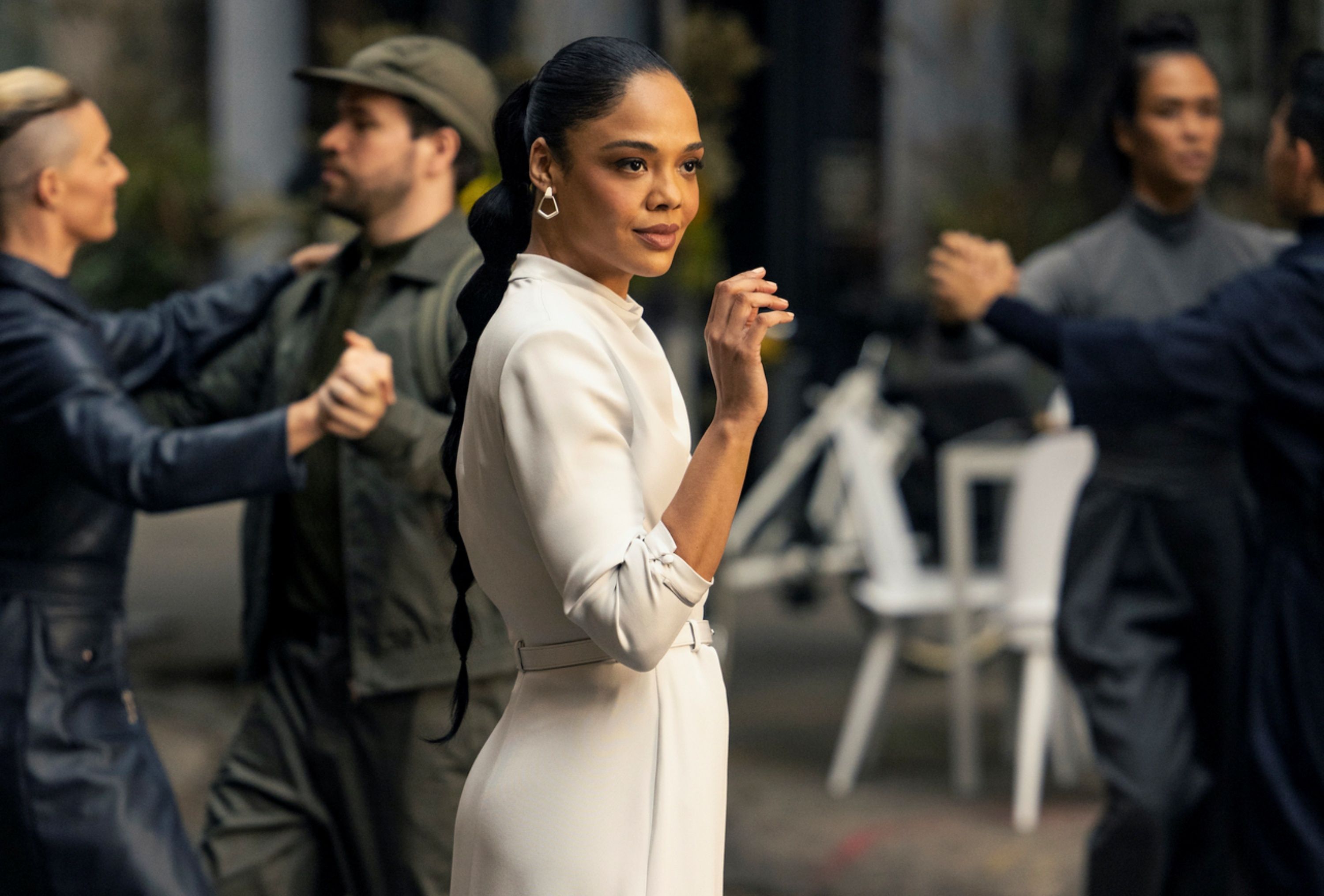[Editor’s note: The following contains some spoilers for Season 4 of Westworld.]From show creators Lisa Joy and Jonah Nolan, the fourth season of the HBO series Westworld has jumped seven years forward in time and presents a disorienting new world that continues to lead its audience down a path of questioning anything and everything that presents itself as reality. Everything feels unsettling, as you wonder who’s a host and who’s a human. While some who were human are now hosts, some hosts have become different beings from what they once were, and some have evolved in their abilities, all talking steps toward whatever terrifying goal they’ve set their sights on now.
During this interview with Collider, co-stars Ed Harris (who plays William, aka Man in Black), Tessa Thompson (who plays the always mysterious Charlotte Hale) and Angela Sarafyan (who plays the host named Clementine) talked about how much of the story arc they knew going into Season 4, how their characters shift and evolve throughout the series, the challenges in being part of a project where you don’t have all the answers, that they’ve learned to enjoy working that way, and how everyone should be terrified of Charlotte Hale.
Collider: How much did you guys actually know about this season, going in? Did any of you have the full arc for your character, or do you just get a partial framework?
ED HARRIS: I was given a very rough outline by Lisa Joy, in terms of where I was headed and what was going on. It was pretty sketchy, but I, at least, got a sense of things.
TESSA THOMPSON: Yeah, I think I had about the same.
ANGELA SARAFYAN: I didn’t know really where the character would go. Actually, there were some conversations about maybe a different direction. I really found out just a while before I started.
Angela, your character seems like the one who could show up in more places than some of the other characters. She’s a little more fluid in who she is and what she does.
SARAFYAN: It’s interesting listening to both Ed and Tessa talk about how their characters shift from season to season. I do feel like there’s a through-line with Clementine, although it has been different from Season 1. With Season 1, there was very clear programming in who she was, and that freedom didn’t exist with her in Season 2, and she no longer had an identity in Season 3. It was a very specific mission, but freedom came after. And with this last season, it’s a different exploration and direction, in being part of this world. It’s been really fun. It’s been fun acting with Ed and Tessa, and finding these moments and rebuilding her, but still having some of Clementine in there.
What are the challenges in being part of a project where you don’t have all the answers, and you don’t have all the pieces to the puzzle? Do you enjoy that? Have you had to learn to enjoy that?
SARAFYAN: I’ve learned to enjoy that, actually. I found that, starting from Season 1, it was almost like I was being directed by the limited amount of information I had. It was about living with the information I’m given. I think that’s a form of direction. I also thought a lot of the material had space for me to find out who she is, based on what I was given. A lot of the time, everything the other characters go through is a theme in her. It’s been cool not knowing where the story’s going and how we’re gonna get there.
Tessa, what is that like for you? How do you feel about the challenge of not having all the answers? Is that fun? Is it an exciting exploration? Do you try to get answers to questions, even if you don’t succeed?
THOMPSON: I would say a little bit of all of the above. I think in previous seasons, there was a big character reveal that I found out, after it technically was introduced in the context of the series, like the idea that Dolores was inside me. I didn’t know that. I knew about that later. And to be honest, in retrospect, in that moment, there was a period where I wish I had known that because maybe I would’ve approached it differently. There is a certain amount of trust. I trust (showrunners) Lisa [Joy] and Jonah [Nolan], and everyone creatively involved in the show, and there are so many moving pieces and parts. Typically, for me, I feel better with telling a story when I understand the macro. The macro helps me understand the micro and get invested in it. There have definitely been moments where I felt a little bit like a ship without rudders. It’s interesting, as an exploration and working this way. It’s been a really singular experience. These last four seasons have been unlike anything I’ve ever done, and I imagine it’s unlike anything I’ll have the chance to do again. I’ve been really struck by relinquishing some of that control. Also, there’s the way that they mastermind this show that’s just extraordinary. I’m happy if I’m gonna be a cog in something moving. This is the most extraordinary, moving thing to be a cog in.
Ed, what has that been like for you, especially this season? Does it feel different, now that there are different versions of this guy? How has that been to layer for you?
HARRIS: The first season, there were a lot of surprises. There were a lot of things that I wish I had known at the beginning of this season, that I found out during the season. I would say to Jonah, “Look, I’m used to doing theater, where you do the same play, night after night, for 140 shows, and making it new every night. I know exactly what the story is and where I’m going.” I don’t know why they don’t tell us. I don’t think they do it because they think it’s gonna improve our performances, or anything. I think they do it because sometimes they don’t know exactly and the rest of the season isn’t written yet, even though they have an arc of it. This season is different for me because my character is a host. I hadn’t been a host ever before. In fact, I was trying to eradicate the hosts, at one point, and now I’m trying to eradicate the humans, on some level. It’s trippy, but it’s fun, I’ve gotta say.
How do you think the original William that you played would feel about where things have gone now? Do you think he would be surprised by what’s happened?
HARRIS: I don’t know how surprised he’d be, but I think he’d be disappointed. He was trying to destroy everything. He was ready to just blow up the whole deal and say, “I made a big mistake in helping create this thing, in the first place.” So, to see where it has gone, I don’t think he’d be so happy.
Tessa, with as focused and determined as your character seems to be, should we be terrified of her?
HARRIS: Yes.
THOMPSON: Yeah. I think she’s scary, but I think she always has been. Even when she was first introduced, early depictions of Charlotte Hale showed what happens when corporate power is disinterested in the human cost of the bottom line and success for the organization. There have always been some things that she represents that are scary. I really love the tenderness of the Dolores version of her last season. I had a really hard time parting with that. But at the heart of any antihero, antagonist or villain, typically the good ones, even inside the comic book world, comes from some pain or some trauma that manifests itself in their villain-like behavior. The pathos of last season is the thing that I felt really connected to. This season, it was about really understanding the mastermind, the plan, and how it worked. It was useful because I feel like Ed and I were constantly having a conversation around it a lot. His character is trying to understand, as her dutiful disciple, but then what are we after here? I don’t know. I found that the interesting thing to engage with. What does it mean when someone does things that are morally askew and nasty, but in the pursuit of something that’s maybe a righteous idea or quest? I think that’s interesting.
These characters are all so interesting. Angela, when it comes to Clementine, do you always try to hang onto some aspect of her, as the core of her? Is there anything that you always try to carry with you, every time you play a version of her?
SARAFYAN: The material has a lot of poetry in it. It always has. Even the very first time I read the sides, I felt there was something very poetic about it. So, specifically with Clementine, I found that she was a dreamer in Season 1. The through-line was that she was a prostitute with a heart of gold. That was her programming. She saw love in every man or woman or person that came through the park. Whether they fell in love with her or not, she fell in love with them. That kept her vulnerable. And as she’s evolved, she’s found her independence and her strength. Through my imagination, I’ve kept a through-line for Clementine and who she is, how she moves, and the things that she does, like her gestures and the sound of her voice. I keep a tiny bit of her that I think exists in her makeup.
Westworld airs on Sunday nights on HBO and is available to stream on HBO Max.




